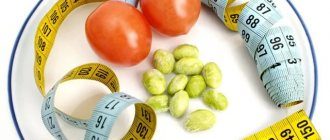Home — For the public
- Map of medical organizations
- Vaccination
- Clinical examination
- Fluorography
- Addresses and opening hours of clinics
- Emergency rooms
- Oncology
- Where to take an HIV test
- Healthy child's office
- Services
- Prevention of CVD
- Disease Prevention
- World Patient Safety Day
- Newspaper "Medical News"
- specialist
- School of Health
— Disease prevention
- HIV infection
- All about vaccination
- All about proper nutrition
- Hepatitis
- Flu
- Dementia
- Schoolchildren's health
- STD
- Tick-borne encephalitis
- Whooping cough
- Measles
- Legionellosis
- Meningococcal infection
- Oncology
- Acute intestinal infection
- Pediculosis
- First aid
- Pneumococcal infection
- Pneumonia
- Prevention of rabies
- Dependency Prevention
- Rotavirus infection
- Diabetes
- Cardiovascular diseases
- Injuries
- Tuberculosis
- Tularemia
- Physical activity
- Obstructive pulmonary disease
- Exotic infections
- Ecology
- Why is swimming in ponds dangerous?
— All about proper nutrition — Diet for obesity, how to lose weight correctly
Obesity is one of the most pressing problems of the modern world. In some countries it has already reached epidemic proportions. In Russia, about 47% of men and 52% of women live with excess body weight. Excess weight is not just a defect in appearance. It can cause many physiological or psychological disorders. To get rid of fat deposits, you first need to change your eating habits.
What are the dangers of obesity
Obesity is due to the fact that the amount of food entering the body of a modern person significantly exceeds what is needed for energy production. As a result, the unspent residue is transformed into fat. The quality of the products consumed also matters. If the basis of the diet is made up of easily digestible carbohydrates, they will certainly be deposited in the form of unsightly folds.
Excess weight should not be perceived simply as a visual disadvantage. It is a risk factor for the development of many diseases. The more adipose tissue grows, the stronger its destructive effect on the body.
Attention: patients with excess body weight are three times more likely to suffer from diabetes mellitus, and twice as likely to suffer from pathologies of the liver and cardiovascular system, compared to people with normal weight.
Obesity is a systemic disease; it can affect the functioning of all internal organs.
Among the diseases that are caused by excess weight:
- hypertension;
- Alzheimer's disease;
- strokes;
- arthritis;
- male impotence;
- phlebeurysm;
- angina pectoris;
- pathologies of the respiratory system;
- depression;
- apnea (sudden stoppage of breathing during sleep);
- heart attack;
- gallbladder pathology;
- osteoarthritis;
- diseases of the digestive tract;
- atherosclerosis;
- menstrual irregularities.
It has been scientifically proven that obesity increases the likelihood of developing cancer of the breast, thyroid glands, colon, gallbladder, and kidneys. The most clearly visible connection is between excess weight and malignant neoplasms of the esophagus, as well as the endometrium. On average, body fat reduces a person's life expectancy by 12-15 years.
The situation is aggravated by the fact that obese people have impaired metabolism - this slows down the process of losing weight. But the situation is reversible. It is possible to “lose” even the heaviest weight. To do this, you first need to change your diet. The main mistake many people make is that they try to give up food completely. As a result, periods of fasting are replaced by breakdowns. The weight returns in even greater volumes, and health problems arise. A professional nutritionist should select a diet for an obese person.
The essence of the diet is to create a calorie deficit. To do this, it is necessary to calculate the daily calorie intake, taking into account the person’s gender, age, lifestyle, as well as weight and height. Nutritionists have compiled various formulas for calculating the required energy consumed with food, which will contribute to weight loss.
How it works: one of the formulas takes into account the load factor:
- their complete absence is noted as 1.2;
- sedentary work and training three times a week – 1.4;
- intense work, 3-5 workouts – 1.5;
- hard physical work, gym 5-7 times – 1.7;
- grueling work and several workouts a day are noted as 1.9.
The selected coefficient should be multiplied by 161 (for women) or 5 (for men)
To calculate the calorie indicator for maintaining a normal weight for women, it is necessary: (9.99 multiplied by weight) + (6.25 multiplied by height) – (4.92 multiplied by age), subtract from the resulting amount (161 multiplied by the load factor ). Formula for men: (9.99 multiplied by weight) + (6.25 multiplied by height) – (4.92 multiplied by age), subtract from the resulting amount (5 multiplied by the load factor).
The calculated caloric intake is sufficient to maintain normal weight. To lose weight, you need to create a calorie deficit, that is, reduce your diet by 200-300 kcal. The diet does not strictly stipulate certain foods, but you should avoid rich and sweet dishes and include vegetables, proteins, and healthy fats in your three meals a day.
Weight loss: The number of pounds lost and the rate of weight loss depend on the amount of calorie deficit created. In addition, the presence of flour, sweets, and unhealthy fats in the diet will contribute to the preservation of fat deposits. Focus on reducing carbohydrates.
Other benefits: Suitable for adults on doctor's recommendation. The diet is especially useful for people over 40 years of age, whose metabolism in the body slows down and losing extra pounds becomes more difficult.
Disadvantages: not suitable during pregnancy and lactation, adolescents and elderly people with chronic diseases, including diabetes, cardiovascular system, gastrointestinal tract,
Summary: Due to a calorie deficit, sufficient water intake, and physical activity, fat burning increases. A person can independently regulate the intensity of weight loss by reducing food intake, creating a diet of favorite foods, taking into account their energy value according to the calorie table.
Basic principles of nutrition for obesity
The diet to treat obesity needs to be balanced. The body cannot be left without essential substances, amino acids, and vitamins. An incorrectly selected diet can cause serious endocrine disorders, disturbances in the functioning of the liver, heart and other organs.
The basic nutritional rules for normalizing weight are as follows:
- daily calorie content ranges from 1700 to 2000 kcal. It is calculated individually, taking into account the patient’s gender, age, height, build, and physical activity;
- limiting the consumption of foods containing fast carbohydrates and animal fats;
- filling the diet with fiber, which is low in calories, but fills the stomach for a long time, creating a feeling of fullness;
- The recommended protein intake per day for an adult with average physical activity is 0.75 g per 1 kg of weight;
- split meals make it easier to control the feeling of hunger. It is advisable to eat 5-6 times a day;
- the daily amount of salt should not exceed 5 g;
- exclusion of spices, herbs, smoked foods, pickles, spicy dishes that increase appetite;
- You should drink one and a half liters of water per day. Before each meal, you should slowly drink half a glass of liquid;
- Boil, bake or steam all dishes. Fried foods should be avoided;
- eat at the same time. Additional snacks are prohibited.
Attention: the norm is considered to be a monthly loss of 3 kg of weight due to fat. Faster weight loss is a lot of stress for the body!
A healthy diet for obesity must be combined with dosed physical activity. You need to start with 10 minutes of exercise, gradually increasing its duration and complexity of the exercises.
The listed rules must be observed especially strictly in the first month of treatment. Then the body adapts to the new diet and daily routine. The risk of breakdowns and a return to previous eating habits will decrease.
Strict diets
In this section, we have collected the most rigorous and effective diets that help you lose weight in the shortest possible time. These quick diets involve severe calorie restriction, so you can't stick to them for many days. The best option would be to observe such restrictions for a couple of days and use them as fasting days. However, if you need to lose 5-7 kg in a short time, these diets are perfect. But it is very important not to supplement the menu with anything, even seemingly harmless vegetables and fruits. If you feel that such a meager diet does not suit you, headaches and general malaise appear, stop the diet and try softer, proper diets - hard options are quite stressful for the body. The same buckwheat diet is very effective, but sitting on it for a month is simply disastrous. During dietary restrictions, do not forget about exercise. But if you don’t have the strength left for them, then at least vigorously rub your body in the shower with a washcloth. Cold and hot wraps, both at home and in a beauty salon, will also be an excellent addition. Products for strict effective diets should be chosen as fresh as possible. In addition, buy a good vitamin complex and do cleansing enemas once a week. The table below presents a list of diets that allow you to lose the most weight in a fairly short time. Read, try, speak out in the comments:
| Diet name | Duration (days) | Can you lose weight (kg) |
| lemon diet | 2 days | up to 4 kg |
| chicken diet | 3 – 7 days | 2 – 4 kg |
| Tomato juice diet | 7 days | 3 – 4 kg |
| kiwi diet | 7 days | 4 kg |
| corn diet | 4 days | 5 kg |
| maggi diet | 30 days | 18 kg |
| goddess diet | 10 days | 8 kg |
| Chocolate diet | 14 days | 3 kg |
| Fast diet | 1 day | 1.5 kg |
| Sour cream diet | 2 days | 1 kg |
| Extreme diets | 7 days | 10 kg |
| Model diet 2468 | 16 days | 10 kg |
| Cold diet | ||
| Chinese rice blitz diet | 5 days | 3 – 5 kg |
| drinking diet | 30 days | |
| orange diet | 7 days | 6 - 7 kg |
| apple diet | 7 days | 6 - 7 kg |
| grape diet | 3 – 7 days | |
| melon diet | 6 - 7 days | 3 – 4 kg |
| English diet "21 days" | 21 day | 7 kg |
| skinny diet | 7 days | 7 kg |
| cucumber diet | 7 days | 5 kg |
| citrus diet | 30 days | 15 - 20 kg |
| kefir diet | 3 days | 3 – 4 kg |
| dairy diet | 15 days | |
| Chinese diet | 21 day | 5 - 6 kg |
| diet buckwheat and kefir | 10 days | 10 kg |
| Indian diet | 21 day | 10 kg |
| buckwheat diet | 30 days | 20 kg |
This list is far from complete; below you can read about other equally interesting diets and try them.
Prohibited and permitted products
Obese patients are usually recommended the so-called dietary table No. 8. It is designed directly to reduce the volume of fat and normalize metabolic processes.
Attention: for patients with concomitant diseases of the cardiovascular system, liver, and digestive organs, individual diets are selected!
Despite the strictness of this diet, it allows you to eat varied and tasty. The list of acceptable products is very extensive. We present the main ones in table form.
| product group | allowed | forbidden |
| flour products | black or whole grain bread (up to 150 g per day) | White bread; baked goods; puff pastry |
| meat | lean beef; rabbit meat; chicken meat without skin and fat; turkey; (any, up to 150 g per day) | pork; goose; duck; mutton; smoked meats; sausages; stew; salo |
| fish | low-fat types (up to 150 g per day); seafood (up to 200 g per day) | all fatty breeds; salted, smoked fish; canned food |
| vegetables | cabbage; cucumbers; radish; zucchini; pumpkin; tomatoes; turnip; greenery; seaweed | potato; carrots (occasionally allowed); green pea |
| side dishes | buckwheat; pearl barley; barley grits; green beans | pasta; rice; semolina; legumes |
| eggs | boiled | fried eggs; fried omelette; |
| fruits and berries | sour fruits and berries; jelly; mousses | grape; bananas; figs; dates |
| beverages | coffee; tea; natural juices from sour fruits and berries; mineral water; rosehip decoction | sweet compotes; jelly; packaged juices; soda |
| seasonings | sauces with herbs in a weak broth; tomato sauce; white sauce with vegetables | mayonnaise; mustard; horseradish; ketchup |
| dairy | kefir; curdled milk; cottage cheese (all low fat) | hard cheeses; sour cream; full fat milk; cream |
It’s good to write out the menu in advance, purchase all the products, and divide them into meals. In this case, you won’t have to “hurriedly” prepare food after work - this can lead to overeating.
General recommendations
Whatever weight loss diet you choose, there are certain rules that will help you get maximum results. A nutrition plan will be many times more effective if:
- Drink up to 2 liters of clean water per day. In this case, the first 200 ml should be taken on an empty stomach to start the metabolic process.
- Avoid sweet coffee, tea, compote. Refined sugar is completely prohibited during a delicious diet.
- Have 5 meals, with the last one 3-3.5 hours before going to bed.
- Avoid preservatives, as they significantly increase the calorie content of the product.
- Consume a minimum of salt, because it retains fluid in the body.
- Play sports, visit baths/saunas, do body wraps.
- Walk in the fresh air every day and do not use the elevator.
- Say “bye” to fast food, chips, crackers.
- Eliminate white bread, pastries, and polished rice from your diet.
Sample menu for the day
Breakfast
- boiled meat (100 g)
- baked beets
- sugar free coffee
Lunch
- vegetable stew
- baked fish (100 g)
- fruit jelly
Dinner
- borscht without meat (150 g)
- low-fat cottage cheese
- dried fruits compote
Afternoon snack
- fresh apples
Dinner
- carrot salad with garlic
- buckwheat
Before going to bed, you should drink one glass of low-fat kefir.
Alternative diets
There are many options for low-carb diets. Not too strict diets include the exclusion of so-called fast carbohydrates. The principle of creating a diet is similar to the “table No. 8” described above. Such restrictions are really useful. They allow the body to receive all the necessary substances and burn stored fat reserves.
Another type of low-carb diet is strict. They exclude almost all products containing these substances. For example, the basis of a protein diet is proteins. They account for up to 80% of the daily diet. Such food quickly saturates, takes a long time to digest, relieving a person of hunger. In addition, the processing of plant and animal proteins requires a lot of energy - this takes up to half of the calories consumed.
Such diets are effective, but must be combined with serious physical activity. Otherwise, proteins that are not needed for muscle mass form nitrogenous compounds that are excreted through the kidneys. The load on the organs increases, creating the preconditions for the development of urolithiasis.
Lack of carbohydrates negatively affects the condition of bones, skin, and hair. From these chemical compounds, the body produces glucose, the main nutrient for the brain. Experiencing a lack of energy, the body begins to use not only subcutaneous fat, but also muscle tissue for its production.
The popular keto diet, which involves a complete abstinence from carbohydrates, is not advisable for beginners. It is allowed to consume only fats, proteins of plant and animal origin. The purpose of such nutrition is to introduce a person into a state of ketosis. This is a type of metabolism in which the body uses ketone bodies (subcutaneous fat derivatives) instead of glucose. The diet is also harmful because, along with carbohydrates, a person stops consuming fiber, vitamins, and microelements contained in the excluded products.
It is possible to lose weight on such a diet, but doing this through complex physiological changes is undesirable. The diet was originally developed for patients with epilepsy, as a link was established between ketosis and a decrease in the frequency of seizures. The keto diet is not recommended for weight loss, but solely as a therapeutic diet.
In any case, before going on this diet, it is better to consult with your doctor. Not everyone can impose restrictions on their diet.
For whom diets are contraindicated?
For many diseases, as well as during certain periods of human development, strict diets are contraindicated.
First of all, you cannot adhere to a low-calorie and restrictive diet in childhood. The basis of metabolism is laid during intensive growth. Lack of nutrients can cause underdevelopment of the skeleton and internal organs, and cause chronic diseases.
In adolescents, a lack of fats and carbohydrates provokes improper synthesis of sex hormones. In adulthood, this can cause an unstable menstrual cycle and reproductive dysfunction.
During menopause, most women gain weight. This is due to the fact that hormonal imbalance affects all processes in the body, including fat metabolism. Strict diets during menopause are not only harmful, but also useless. You can stop weight fluctuations only by taking estrogen medications recommended by your gynecologist.
Limited nutrition for pregnant and lactating women is strictly prohibited. Lack of nutrients during pregnancy can negatively affect the course of pregnancy. Also, malnutrition often leads to the birth of a weakened child with neurological, immune problems, and developmental delays.
In nursing mothers, weight usually returns to normal on its own within a year, since accumulated reserves are “used up” by the body to produce milk with a reasonable, balanced diet. Dietary restrictions can provoke hormonal imbalance and even greater weight gain.
There are certain diets for patients with certain chronic diseases. Among the pathologies:
- gastritis;
- heart diseases;
- ulcer;
- intestinal diseases;
- disorders of the kidneys;
- pathologies of the liver and gall bladder;
- pancreatitis.
People with diabetes and thyroid dysfunction cannot independently experiment with nutrition. In these cases, weight correction takes place under the strict supervision of the attending physician, who selects a suitable therapeutic diet for the patient.
Advantages and disadvantages
| pros | Minuses |
|
|
How to lose weight without dieting
In most cases, in order to lose weight, it is not necessary to force the body with strict restrictions. It is enough to minimize the consumption of fast foods, processed foods, cream cakes and other unhealthy foods.
Following a few simple rules will help you achieve your ideal figure:
- drink enough clean water. This will not only provide the cells with the necessary amount of moisture, but will also help reduce appetite;
- Exercise will help speed up your metabolism. It is enough to spend 10-15 minutes a day on exercises;
- eat often, in small portions. Do not eat while reading or watching TV. This way you can get distracted and eat much more than you need;
- spend more time in the fresh air, breathe deeper. This way the tissues are saturated with oxygen, metabolic processes proceed faster;
- get a good night's sleep;
- do not finish eating “by force.” It’s good to take short breaks while eating; if you feel full, then you have enough food.
Between lunch and dinner, you can suck on a couple of slices of dark chocolate with a high cocoa butter content (at least 70%). You can replace it with several dried fruits; they must be chewed slowly. Thanks to this, the brain receives a signal that there is sufficient glucose supply, and appetite decreases.
Obesity is not just a harmless cosmetic defect. This is a dangerous pathology that can cause disability and premature death of the patient. It is necessary to normalize weight, but a thoughtless desire for an ideal figure can cause no less harm to a person’s health than fat deposits. You need to lose weight correctly, under the supervision of a qualified nutritionist.











